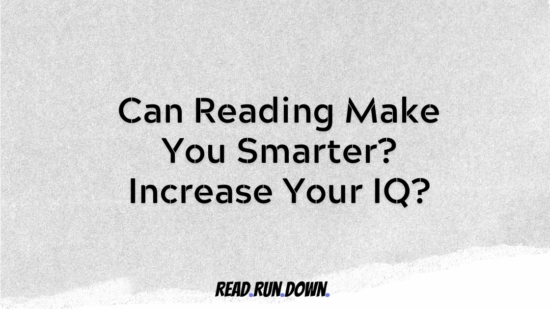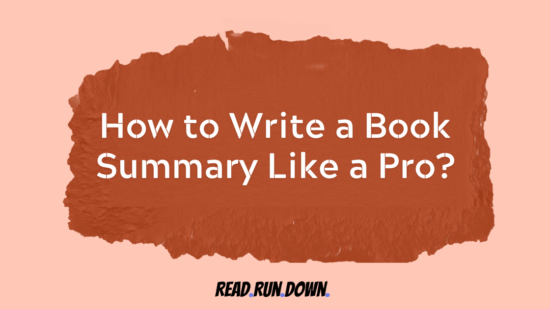Ever thought about whether reading can make you smarter? Can books make you more intelligent? The answer might be in enjoying a good book in a world full of information. Let’s explore the interesting link between reading and getting smarter, discovering the amazing possibilities found in words on a page.
Come with me on this adventure into the fascinating world where curiosity and thinking come together.
The big question is: Can reading make you smarter?
Does Reading Make You Smarter?
Can reading make you smarter? It’s not just a guess; science backs it up. When you read, your brain gets into action, doing a fancy dance of understanding words and creating mental pictures. Neuroscientific studies say that reading lights up different parts of your brain, especially the ones for language, understanding, and imagination.
So, it’s like a workout for your brain, making you better at thinking, analyzing stuff, and connecting ideas.
Reading also does this cool thing called neuroplasticity, which is a fancy way to say your brain can adapt and organize itself. You’re giving your brain a good exercise when you read different things—like different types of books or articles.
It’s like doing mental push-ups, making new paths in your brain, and strengthening the old ones.
And guess what? This doesn’t have an age limit or care about how much school you’ve been to. The good stuff happens whether you’re a book lover from way back or just getting into it.
Studies even say reading for only six minutes daily can chill you out and make your heart beat slower. It’s not just about what you read; it’s about getting into words that do wonders for your brain.
So, think of reading like going to the mental gym. It’s a workout that strengthens your brain muscles, helping you be smarter and more aware.
Next time you’re lost in a book, know that it’s not just reading—it’s a brain workout that can make you smarter, wiser, and ready to handle the tricky parts of the world around you.
Further Reading: How to Write a Book Summary Like a Pro?
Does Reading Increase Your IQ?
Can reading boost your IQ? It turns out it’s not just a cool idea; research shows there’s something to it. Reading regularly is like giving your brain a workout that can increase your intelligence quotient (IQ).
So, what’s the deal with reading and getting smarter? Well, reading throws challenges at your brain.
Whether diving into a story or soaking up facts, your brain must work. Like mental exercises, figuring out words, understanding tricky plots, and connecting different ideas.
These challenges make your brain more active and help it grow, making you smarter.
Studies even back this up, showing that people who are good at reading tend to have higher IQ scores. Reading isn’t just about knowing stuff; it’s about how your brain processes and uses that knowledge.
When you read, you’re not just taking in information; your brain is dancing to understanding, thinking, and applying what it knows.
And get this—reading isn’t a one-time thing. It can stick with you if you start reading when you’re young. Kids who grow up surrounded by books often have better language skills and sharper brains.
It’s like setting the stage for a smarter life.
But it’s not just about reading anything. The kind of stuff you read matters, too. Jumping into stories with complex plots or non-fiction with many ideas challenges your brain even more.
This kind of reading helps your brain be flexible, switching between tasks easily—a sign of a pretty clever brain.
So, the next time you open a book, know it’s not just a story or some facts. It’s a workout for your brain that can make you smarter, whether you’re just starting or have been reading for years.
Keep flipping those pages, and watch your brain get even more awesome!
Discover a World of Stories in Our Summaries Collection!
Welcome to our curated collection of book summaries – a shortcut to literary brilliance! Whether you’re a seasoned reader or just starting, our summaries provide key insights in no time.
Ready to Read? Dive In Now!Read all Book Summaries
Benefits of Reading
Let’s talk about why reading is not just about getting smarter but also about making life better in many ways.
- Stress Reduction and Relaxation
Life can get pretty crazy, right? Taking a break is super important in the middle of all the chaos. Reading does something magical here. It’s like a mini vacation, carrying us to different worlds and letting the stress disappear.Studies even say reading a good book can slow our heartbeats and lower stress hormones. So, a good book can be a calming friend when everything feels too much.
- Improved Focus and Concentration
With all the distractions around us, focusing on one thing is a superpower. Guess what? Reading helps us build that power. When you’re reading, you have to give it your full attention. This makes reading more enjoyable and helps you concentrate better on other parts of your life.Whether it’s a tough work project or a deep conversation, the focus you learn from reading becomes a cool skill that comes in handy.
- Enhanced Empathy and Understanding
One of the coolest things about reading is how it makes us more understanding and compassionate. It’s like stepping into their shoes when we dive into stories about people from different backgrounds. This helps us appreciate the diversity of human life.The empathy we learn from reading isn’t just for the characters; it spills into our real lives. It makes us better at connecting with others, creating a more united and friendly world.
- Increased Knowledge Across Varied Subjects
Learning new stuff is like a lifelong adventure; reading is our trusty guide. Whether you’re into history, science, or the mysteries of the universe, reading has your back. Each time you read something, you’re adding to your knowledge bank. The best part? There’s always something new to discover.It’s like having a curiosity that never gets old, letting you explore different worlds and times without leaving your comfy chair.
So, when you open a book, it’s not just words on paper. It’s a ticket to relaxation, a training ground for focus, a journey into empathy, and a key to a world of endless knowledge.
Keep reading, and watch your life become smarter and richer in so many wonderful ways!
Practical Tips for Reading to Boost Intelligence
Now that we know reading is like a superhero for your brain let’s talk about how you can make the most of it. Here are some easy tips to turn your reading into a secret weapon for getting smarter:
- Diversify Your Reading
Mix it up! Try reading different kinds of books—adventure, mystery, science, whatever catches your eye. It’s like giving your brain a buffet of ideas and perspectives. The more variety, the better the workout for your mind. - Set Aside Dedicated Time
Make reading a part of your daily routine. Pick a specific time in your day, maybe before bedtime or during lunch, just for reading. This way, you’re not squeezing it in; you’re making it a special moment to enjoy. - Stay Consistent
Consistency is the key to the magic. Make reading a habit, like brushing your teeth or having morning coffee. Even if it’s just a few minutes each day, the more you do it, the more your brain will thank you. Over time, you’ll see the awesome results of this regular brain workout.
So, there you have it—three simple tips to make your reading habits work wonders for your brain. Diversify, make time, and stay consistent. Your brain will love you for it, and you might just unlock the superhero within!
Conclusion
So, can reading make you smarter? Absolutely! Science, stories, and the experiences of many people all agree. As you step into the world of reading, remember it’s not just about flipping pages; you’re building a smarter and sharper version of yourself. Grab that book, dive into its pages, and let the enchanting magic of reading unfold. The journey of knowledge is a lifelong adventure that keeps filling our minds and souls with richness.
Happy reading!

